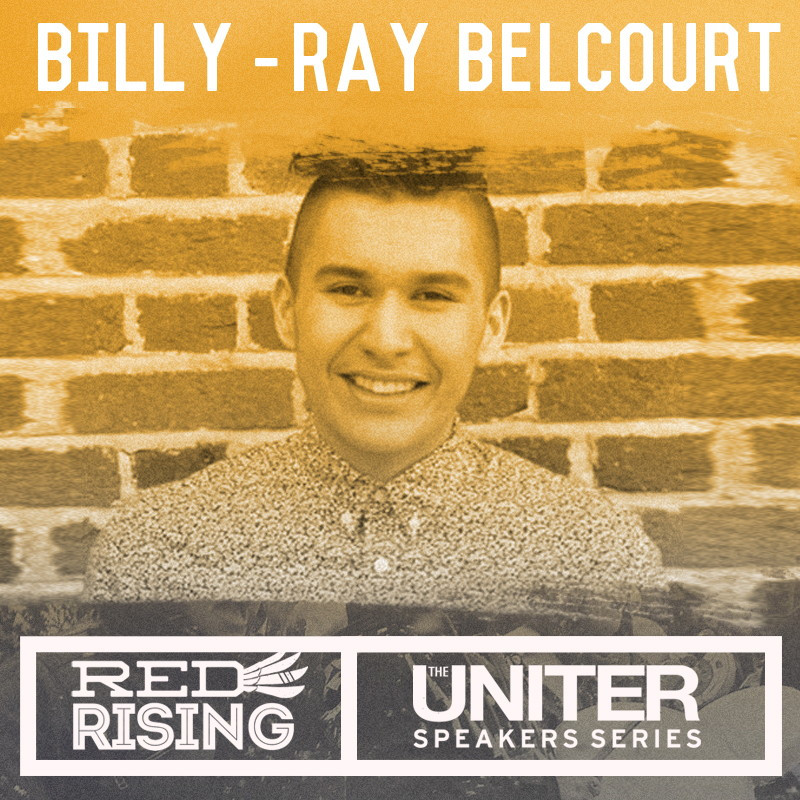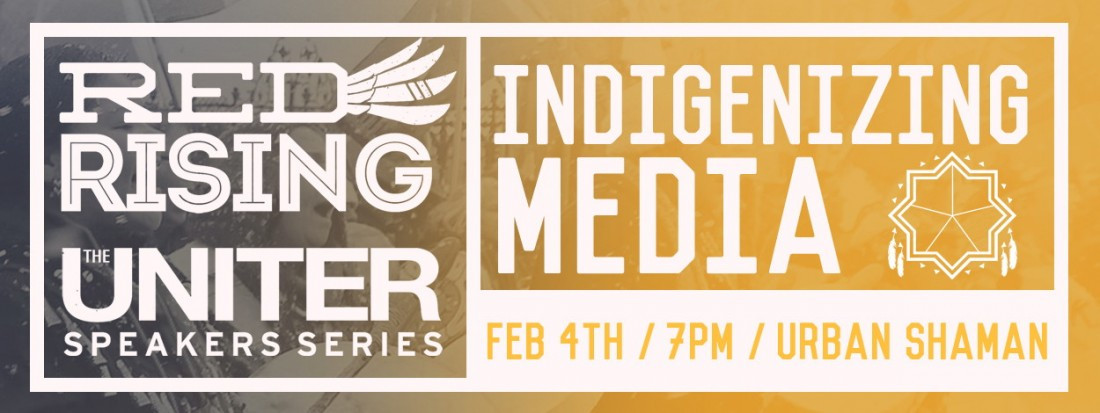Indigenizing Media with Billy-Ray Belcourt
A Q&A with First Nations Rhodes Scholar-elect Billy-Ray Belcourt
Come hear Billy-Ray Belcourt in person on Thursday at 7 pm at Urban Shaman Contemporary Aboriginal Art Gallery.
And as members of Red Rising wipe the dust off their hands following issue 2, we wanted to commend their work, celebrate their creativity and shine a light on the discussion they’ve opened up.
From scholars to media moguls to activists, we have a range of speakers on our roster. We asked some of them for their insight. Here’s what First Nations Rhodes Scholar-elect Billy-Ray Belcourt had to say.
Why are you interested in media?
I am interested in the media because it is the space within which multiple publics are teased apart, constituted, and, sometimes, undone. This undoing, of course, is lopsidedly distributed such that Indigenous peoples will be pushed into stories that aren't actually ours, locked in the past or inside stereotypical histories that threaten us and our worlds. We need to think hard about how we might dream up and support other kinds of Indigenous media like Red Rising Magazine.
Why does this event speak to you?
This is a event done in name of indigeneity, bringing together Indigenous peoples with varied media entanglements in order to think about the possibility of doing things otherwise.
What are the most important issues surrounding indigenous representation in the media?
I'm for our people's survival, and I know that mainstream media doesn't do the work that can sustain us. We need to turn to and invest in alternative and Indigenous media sources to tell our stories on our own terms. The Native Youth Sexual Health Network, for example, has made really robust arguments about the ways media representation is literally felt on the body, that it cannot be thought outside the hydra-headed quality of violence, to use M. Jacqui Alexander's language, that makes settler states like Canada possible.
“ Indigenous peoples [are] pushed into stories that aren’t actually ours, locked in the past or inside stereotypical histories that threaten us and our worlds. Billy-Ray Belcourt
What can we learn from projects like Red Rising Magazine?
Red Rising Magazine takes a grassroots form whereby it's by and for Indigenous youth. They are proving that you don't need to make recourse to mainstream media to do deeply radical work. They've taught us that Indigenous, youth, and media can be thought together!
What do we as writers, publications or consumers of media need to stop doing?
There seems to be this fantasy whereby journalists and mainstream media are believed to be doing the work of the public, a kind of civic duty we can't do without. Y'all need to stop reproducing this fantasy because Indigenous peoples have been saying, over and over again, how materially damaging media can be. Y'all need to engage with Indigenous peoples in an ethical way: maintaining ongoing consent, asking Indigenous peoples to look over the story before publication (this is radically different than asking a politician, for example, to do the same), hiring more Indigenous journalists and producers.
What are we as writers, publications or consumers of media doing right?
I would say that there are journalists and publications committed to social justice, willing to provide space for Indigenous peoples to tell their own stories. Keep doing this. Also, keep being critical readers: question, interrogate, tease apart!
Billy-Ray Belcourt is from the Driftpile Cree Nation. He is a 2016 Rhodes Scholar-elect and is completing a BA (Hons.) in Comparative Literature at the University of Alberta, working at the intersections of queer theory, feminist theory, indigenous studies, affect theory, and critical animal studies. Belcourt is an emerging writer and has been recently featured in activehistory, rabble.ca, and Red Rising Magazine. Find his blog at: https://nakinisowin.wordpress.com







